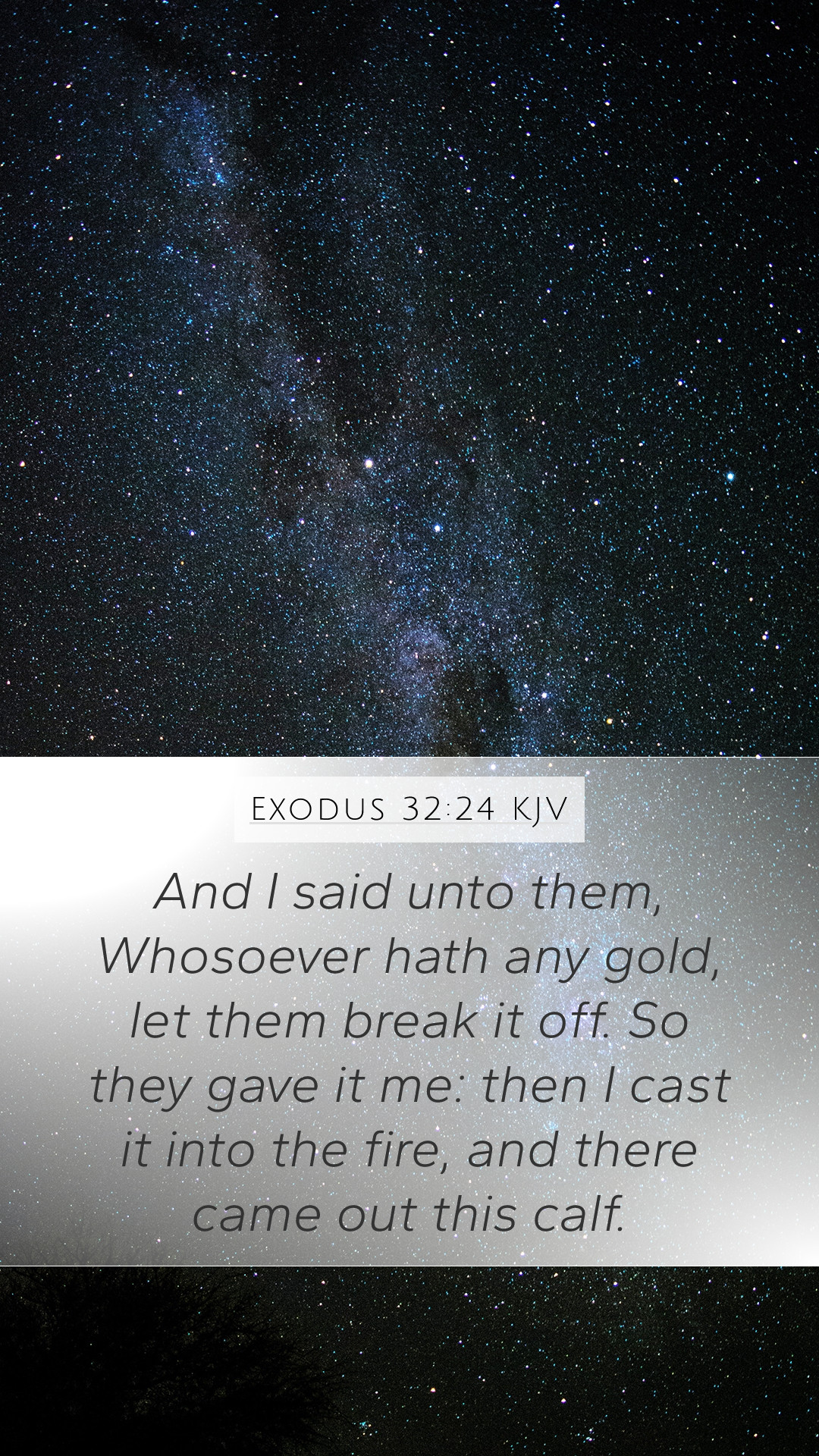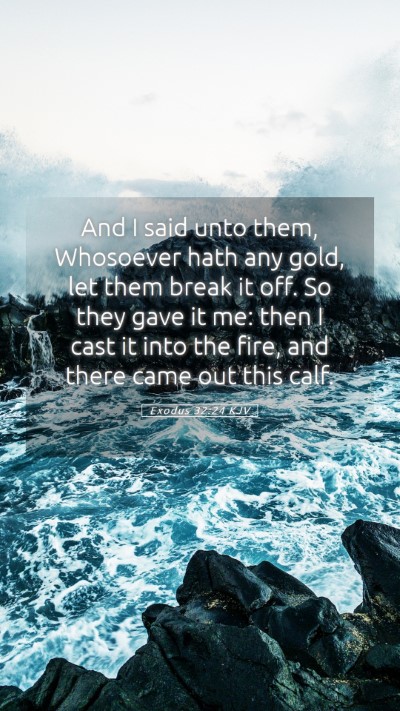Understanding Exodus 32:24
Exodus 32:24 states:
"And I said unto them, Whosoever hath any gold, let them break it off. So they gave it me: then I cast it into the fire, and there came out this calf."
Overview
This verse is part of the narrative where Aaron, the brother of Moses, after the Israelites' exodus from Egypt, created a golden calf for the people to worship. This passage reflects on themes of idolatry, leadership accountability, and human weakness.
Bible Verse Meanings
In examining the meaning of Exodus 32:24, we can gather insights from various commentaries. The verse illustrates not just the act of crafting an idol but also highlights Aaron's attempt to deflect responsibility regarding the people's rebellion against God.
- Idolatry: The creation of the golden calf signifies Israel's desire to return to the familiar practices of Egypt, abandoning their covenant with Yahweh.
- Passivity in Leadership: Aaron's feeble excuse shows the struggles of leaders in upholding God's commands amidst societal pressure.
- Human Nature: This verse unveils the rapid turn of the Israelites from a commitment to God to an inclination toward idolatry, resonating with a pervasive issue seen throughout Biblical history.
Commentary Insights
Matthew Henry
Matthew Henry emphasizes that Aaron's words are a notable excuse and not a confession of guilt. By describing the miraculous emergence of the calf from fire, he highlights the absurdity of idol-making and the ignorance of those who could easily create their own deities yet claim them as miraculous.
Albert Barnes
Albert Barnes elaborates by pointing out the significance of the 'fire'. He discusses how the people, through their impatience, chose to revert to visible forms of worship, abandoning the unseen God. Barnes notes the serious implications of this decision, as it directly opposes the first commandments given on Mount Sinai.
Adam Clarke
Adam Clarke dives deeper into the implications of Aaron's statement and suggests it reflects both a lack of leadership and a profound misunderstanding of spiritual authority. He identifies how the sinful act led to dire consequences for the people and the nature of God’s covenant with Israel.
Application of the Verse
The application of Exodus 32:24 to modern believers involves several reflections:
- Avoiding Idolatry: Just as the Israelites turned to idolatry, contemporary believers must guard against the distractions and false idols in today's world.
- Leadership Accountability: Leaders in faith communities should strive to uphold truth and guide others with integrity, avoiding the pitfalls seen in Aaron's example.
- Reflection on Gift Use: This passage encourages believers to consider how they utilize their gifts and resources—whether for God's glory or for self-serving purposes.
Historical Context
Understanding the historical context of Exodus 32:24 reveals much about the culture and practices of the time. The Israelites, freshly liberated from slavery, were still entrenched in the customs of their former life. Idol worship was not only a common practice but one that fulfilled a psychological and spiritual need for them during a transformative period.
Cross References
This verse connects with several other scriptures that further illustrate its themes:
- Exodus 20:4-5: The commandments forbidding idol worship.
- Numbers 25:1-3: The subsequent consequences of idolatry among the Israelites.
- 1 Corinthians 10:14: New Testament admonitions against idolatry.
Conclusion
Exodus 32:24 serves as a profound reminder of the dangers of turning away from God and the propensity for humanity to seek physical representations of divinity in times of uncertainty. This discourse enables us to deepen our understanding of Scripture, apply the lessons of our forebearers, and maintain faith in God amid trials.


